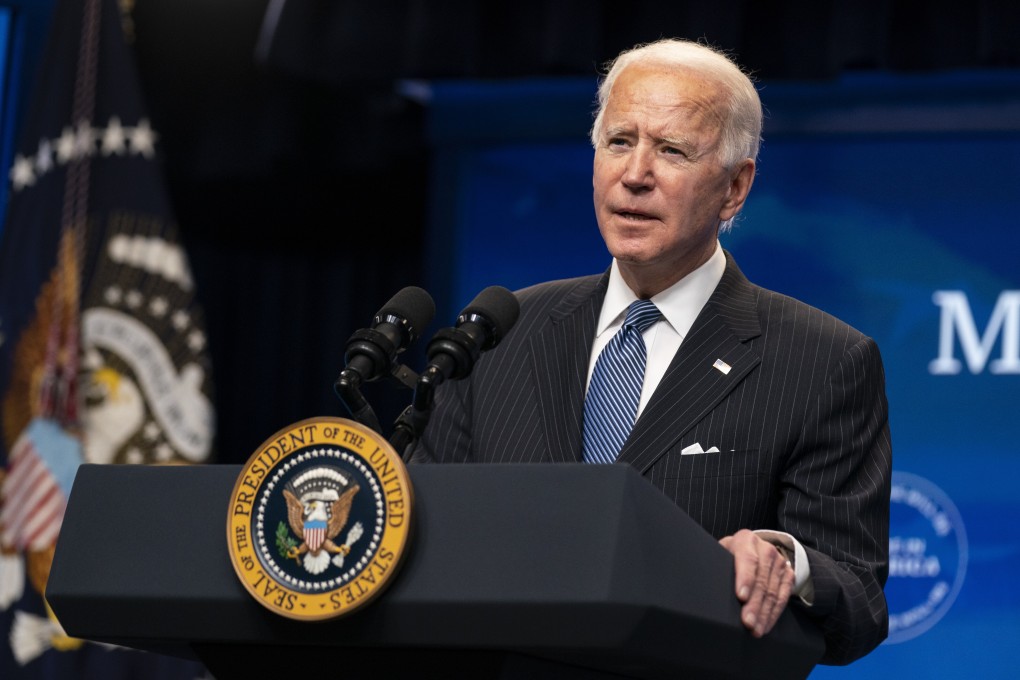Joe Biden expected to sign executive order countering Asian-American discrimination
- Asian-American community has made an all-out push to end the Trump administration’s controversial ‘China Initiative’
- Biden’s expected executive order aimed at countering Asian-American racial discrimination will be part of a themed ‘Equity Day’ scheduled for Tuesday

The initiative, launched in 2018 by the Justice Department, aimed to blunt Chinese influence. Supporters have said it has put Beijing on notice, but critics have countered that it has produced few results and significant collateral damage, including a chilling effect on scientific exchange and the demonisation of Asian-Americans.
“The community is reacting to the immediate threat before them. They feel besieged because of the mass investigations … Trump’s rhetoric and the spike in hate crimes,” said Aryani Ong, an Asian-American rights activist and former civil rights lawyer. “This organising represents an effort to stand up and announce that Asian-Americans belong in the US and deserve to have their rights protected.”
Biden’s expected executive order aimed at countering Asian-American racial discrimination will be part of a themed “Equity Day” scheduled for Tuesday. Other executive orders were expected to establish a commission on policing and limiting transfers of military-style equipment to local law enforcement agencies.

03:30
Asian-Americans in New York among those joining US protests after George Floyd’s death
Behind the bid to eliminate the China Initiative is the growing confidence and political power of a community that traditionally steered clear of politics or confrontation as a so-called “model minority”, its members have said.